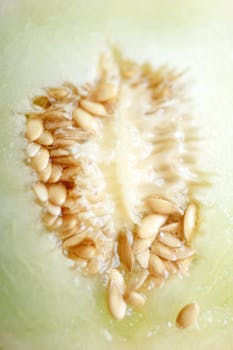Have you ever caught your cat sniffing at your leftovers or nibbling on something they shouldn’t? If you’ve been slicing up a honeydew melon and wondered whether your feline friend can safely eat the rind, you’re not alone. Many pet owners are curious about which human foods are safe for cats. Let’s explore whether honeydew rind is safe for your cat and what you need to know about offering this to your furry companion.
🍈 What Is Honeydew Rind, and Why Might Cats Be Interested?
Honeydew melon is a sweet, juicy fruit that humans enjoy, especially in the summer. The rind is the tough, outer skin that protects the fruit inside. While most people discard the rind, it’s not uncommon for cats to show interest in it. Cats are naturally curious creatures, and their sense of smell often leads them to investigate unusual items, including food scraps.
But why might a cat nibble on honeydew rind? It could be the texture, the smell, or simply curiosity. However, just because your cat shows interest doesn’t mean it’s safe for them to eat.
🐾 Is Honeydew Rind Safe for Cats?
The short answer is no, honeydew rind is not safe for cats to eat. While the fruit itself is non-toxic in small amounts, the rind poses a number of risks. Here’s why you should avoid letting your cat eat honeydew rind:
- The rind is tough and difficult to chew, which can lead to choking or digestive blockages.
- It may contain pesticides or chemicals used during farming, which can be harmful to cats.
- The rind offers no nutritional benefits for cats, as they are obligate carnivores and don’t require plant-based foods in their diet.
Even if your cat seems interested in honeydew rind, it’s best to err on the side of caution and keep it out of their reach.
🚨 Symptoms to Watch for if Your Cat Eats Honeydew Rind
If your cat manages to nibble on some honeydew rind, it’s important to monitor them for any signs of discomfort or illness. Symptoms may include:
- Vomiting or regurgitation
- Diarrhea or changes in stool consistency
- Loss of appetite
- Lethargy or unusual behavior
- Signs of choking or difficulty breathing
If you notice any of these symptoms, contact your veterinarian immediately. While a small piece of rind may pass through your cat’s digestive system without issue, larger amounts can cause serious problems, such as intestinal blockages.
😺 Safe Alternatives to Honeydew Rind
If your cat is curious about honeydew, there are safer ways to indulge their interest. Consider these alternatives:
- Offer a tiny piece of honeydew melon (without the rind) as an occasional treat. Make sure it’s seedless and cut into small, manageable pieces.
- Provide cat-safe fruits like blueberries, strawberries, or sliced cucumber in moderation.
- Invest in catnip or cat grass to satisfy your cat’s curiosity about plants.
Remember, treats like honeydew should only make up a small portion of your cat’s diet. Their primary nutrition should come from a high-quality, meat-based cat food.
🩺 What to Do if Your Cat Eats Honeydew Rind
Accidents happen, and if your cat eats honeydew rind, here’s what you should do:
- Remove any remaining rind from their reach to prevent further ingestion.
- Check your cat for signs of choking or discomfort.
- Contact your veterinarian for guidance, especially if your cat has eaten a significant amount.
- Monitor your cat closely for any unusual symptoms over the next 24–48 hours.
Your vet may recommend bringing your cat in for an examination or providing supportive care at home, depending on the situation. Acting quickly can help prevent complications.
🌟 Vet-Approved Tips for Keeping Your Cat Safe
To avoid accidental ingestion of honeydew rind or other harmful foods, follow these tips:
- Keep human food, including fruit and vegetable scraps, out of your cat’s reach.
- Dispose of food waste in a secure trash bin that your cat cannot access.
- Provide your cat with safe, engaging toys and treats to discourage curiosity about human foods.
- Learn which foods are toxic to cats and keep a list handy for reference.
Being proactive about your cat’s diet and environment can go a long way in keeping them healthy and happy.
FAQs
Can cats eat honeydew fruit?
Yes, cats can eat small amounts of honeydew fruit as an occasional treat. Make sure it’s seedless and cut into small pieces.
Why do cats like honeydew rind?
Some cats are attracted to the texture or smell of honeydew rind, but their interest doesn’t mean it’s safe to eat.
What should I do if my cat eats honeydew rind?
Remove any remaining rind, monitor your cat for symptoms, and contact your veterinarian for advice.
Are there any fruits that are safe for cats?
Yes, fruits like blueberries, strawberries, and watermelon (without seeds or rind) are safe in moderation.
Can honeydew rind cause long-term health issues in cats?
While rare, eating honeydew rind could lead to intestinal blockages or other complications, so it’s best to avoid it altogether.
References
Book a $49 online vet consultation at https://www.dialavet.com for fast, expert advice.























